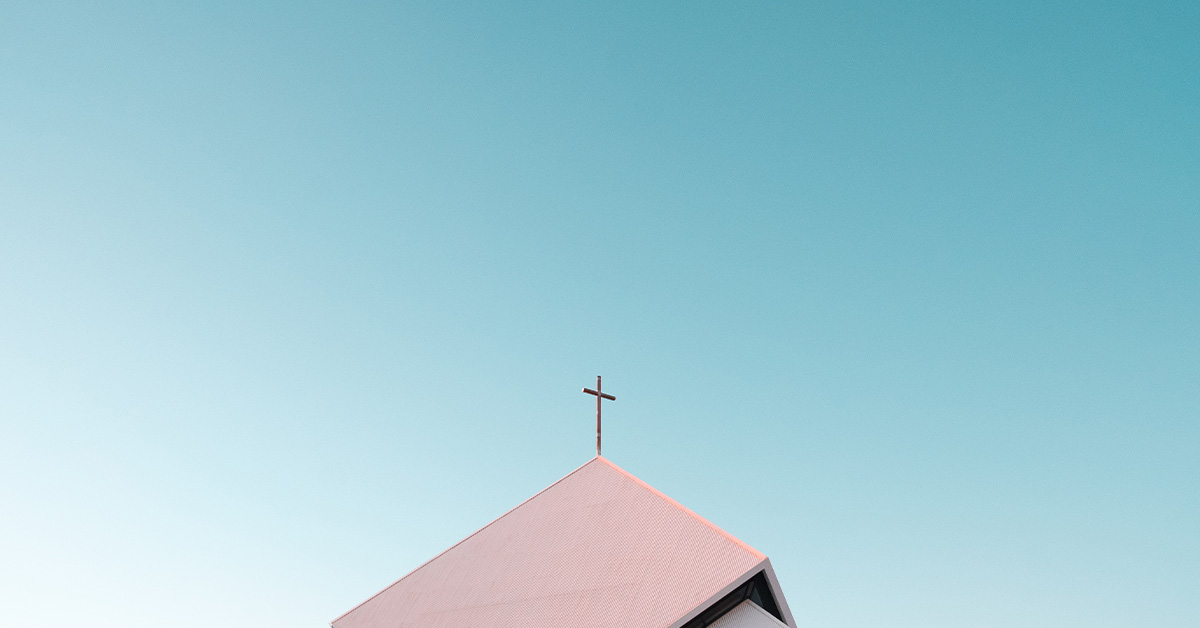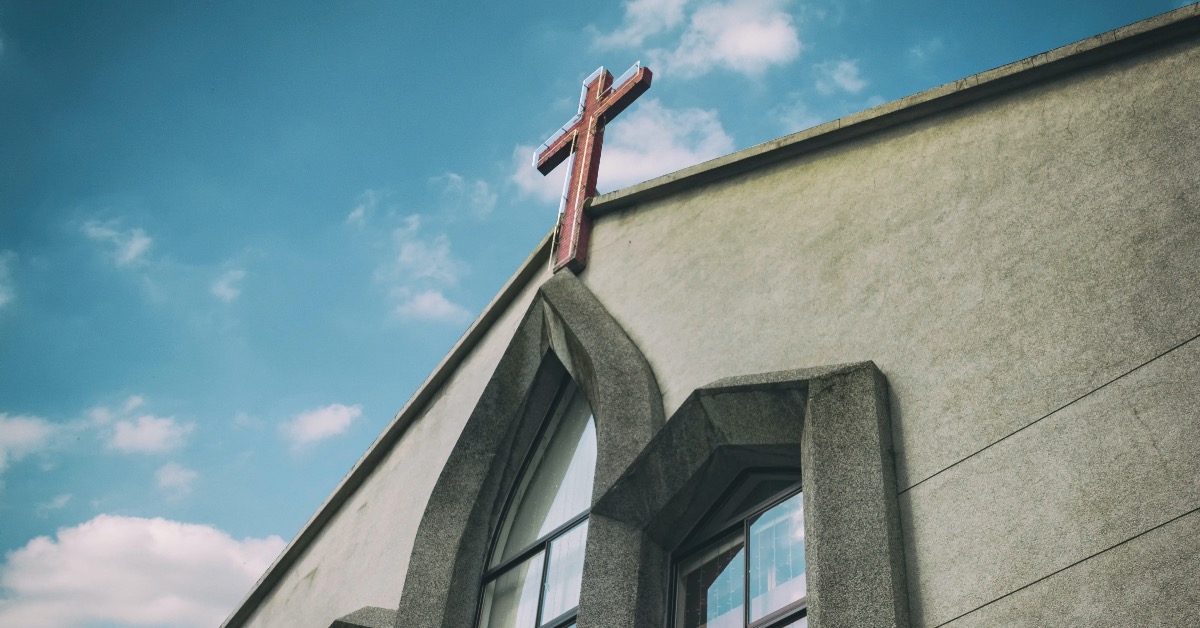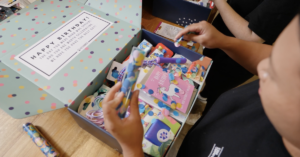A vision for God’s people
Have you ever wondered whether your kids have selective hearing? Often you can ask them to do something and get no response. When my son Kaha was little, we applied a strategy recommended by a friend where he would respond with “yes mummy” to let me know he’d heard me. I’d say, “It’s time to put your shoes on, say yes mummy.” “Yes mummy,” he’d reply. It became part of how we communicated. One afternoon, my son called to me from his room, “mummy, mummy!” He said, “Mummy, it’s time for us to go to the park, say yes Kaha.” He’s just figured that’s what you do to get things done. It was an innocent (and clever) effort to get me to do what he wanted to do in that moment.
It was a very funny and cute moment. As I turned to walk out of his room, I felt the Holy Spirit prompt me and say to me, “You do that to me.”
He was right. How often do I say or think, “Lord, it’s time for you to do something about our finances, say yes Heather.” “It’s time for you to do start fixing up that relationship because I don’t like the way that it’s being sorted out.” But when we read Scripture we are reminded of the fact that the Lord is God and we are not. Our response to Him should always be “Yes Lord”. Not the other way around.
We can approach the idea of missions and justices and being God’s people with preconceived thoughts about what our response is going to be. Maybe you think, “that’s not for me”. Instead, it’s an opportunity to ask God, what is it you have for me in this space? We need to be open for God to speak to us and as His people have a response that says I’m going to do what you ask of me. My response to you is “Yes Lord.”
And now, Israel, what does the Lord your God ask of you but to fear the Lord your God, to walk in obedience to him, to love him, to serve the Lord your God with all your heart and with all your soul, and to observe the Lord’s commands and decrees that I am giving you today for your own good? Deuteronomy 10:12 NIV
How often do we read the laws of the Old Testament as the caging or wing-clipping; this is what you must do and must not do. We don’t often think about it as something being given for our own good.
Israel was in a position, out of Egypt, being directed towards the promised land. The Lord wanted to make them into His own nation, the nation that would bear his name. He started to prescribe for them Laws, rules and regulations so they’d represent His character well. He’s saying I’m giving you these for your good. You will do well if you follow these things.
It’s good for us to look at what God prescribes for us because it turns us into the kind of people who can bear His name and represent Him well.
To the Lord your God belong the heavens, even the highest heavens, the earth and everything in it. Yet the Lord set his affection on your ancestors and loved them, and he chose you, their descendants, above all the nations—as it is today. Circumcise your hearts, therefore, and do not be stiff-necked any longer. For the Lord your God is God of gods and Lord of lords, the great God, mighty and awesome, who shows no partiality and accepts no bribes. He defends the cause of the fatherless and the widow, and loves the foreigner residing among you, giving them food and clothing. And you are to love those who are foreigners, for you yourselves were foreigners in Egypt. Deuteronomy 10:14-19 NIV
As God is creating this nation that would bear his name, he’s wanting to prepare them for the promised land he’s set there for them. He’s saying I’m going to give you all of this inheritance and by tribe and clan you will have land and because you have land you will be able to produce and therefore survive and thrive in this land. He says, there are these groups of people – orphans, widows and foreigners – who will be landless. They are not going to inherit. So when you come into the new land, these are the ones you need to look out for, the ones who can’t provide for themselves. Make sure you don’t just go into your promised land and say, ‘Oh, this is good. I have the blessing of God here, I can provide for my family, I can plant, I can prosper’. But make sure that you look out for those who can’t do those things. Make sure that you include them in your society and that they are cared for and looked after as well. Again and again throughout the Old Testament you hear the Lord reminding His people, look out for the fatherless, the widow and the foreigner. Make sure that you care for the fatherless, the widow and the foreigner.
What we see is a vision of God’s people representing His character to the world around them.
What was meant to happen is that the other nations were meant to look at the blessing Israel had and the way they accepted those on the margins and those who couldn’t provide for themselves, and it would tell them something about the nature of God. They would be able to see and understand the nature and the goodness of God because of how His people behaved. They would be able to see and understand his goodness and this mission would happen, the other nations would turn to the Lord.
When you are harvesting in your field and you overlook a sheaf, do not go back to get it. Leave it for the foreigner, the fatherless and the widow, so that the Lord your God may bless you in all the work of your hands. Deuteronomy 24:19
God ties his blessing to the way that the people would care for the landless people. That’s how important it is to Him. We see again and again throughout scripture this vision of Deuteronomy coming through, that God’s people would display His character to the world around them.
A father to the fatherless, a defender of widows, is God in his holy dwelling. Psalm 68:5 NIV
Defend the weak and the fatherless; uphold the cause of the poor and the oppressed. Psalm 82:3 NIV
if you do not oppress the foreigner, the fatherless or the widow and do not shed innocent blood in this place, and if you do not follow other gods to your own harm, then I will let you live in this place, in the land I gave your ancestors for ever and ever. Jeremiah 7:6-7 NIV
So I will come to put you on trial. I will be quick to testify against sorcerers, adulterers and perjurers, against those who defraud laborers of their wages, who oppress the widows and the fatherless, and deprive the foreigners among you of justice, but do not fear me,” says the Lord Almighty. Malachi 3:5 NIV
He ties all of this to Israel’s own experience. Why am I asking you to care for the landless and marginalised? Because you were once foreigners in Egypt. Have a look at your life and see what I have done for You; when I brought you in, cared for you, made you my own. I’m asking for you to represent my character to the world around you by bringing others in. So that they will be able to look at how they once were and know that they are accepted and they belong.
We see this vision of Deuteronomy works again and again and again. We read these passages, especially through the prophets, where the Lord keeps speaking to His people and saying do not neglect those on the margins. Make sure you are representing me to the world around you by including those as I have included you.
There’s a fascinating thing we see in Scripture, where there’s this struggle. Israel knows the law of God and drifts from it. He brings them back and reminds them. Then they drift from it. On and on, until one moment when all of a sudden, they get it right. Where? Acts.
All the believers were together and had everything in common. They sold property and possessions to give to anyone who had need. Acts 2:44 NIV
After Jesus comes, dies and rises again, imparts his Spirit and the Church is birthed, the Holy Spirit starts living out this character in the people of God. They start to get it right.
There are many stories about how the early Church stepped into this zone, started bringing in orphans, widows, foreigners; started caring for anybody who had need in their culture and society.
In Ephesus there was a great movement recorded in history books where God’s people would take babies off rubbish dumps. At the time in the Roman empire you were allowed to discard a child you believed you couldn’t care for. It was actually quite common. Perhaps you had limited income and needed an heir. You might’ve had a daughter, oh well, let’s leave that child outside the city walls.
The early church would collect up these babies and bring them into their homes and care for them as their own. Not because they had more finance (a lot of the time they were financially marginalised) but because they believed God when he said all humans are created in my image.
So they would raise these children as their own and over the decades these children, predominantly girls, grew up in these Christian homes and all of a sudden you’ve got a culture that is male heavy looking for women to marry. So where do they go? They go to the church to find a wife. At the time the legal marriage age was thirteen. But God’s people weren’t ok with that. They said, no, we’re going to allow our girls to marry later, at sixteen (still too young, but at the time it was radical).
An interesting thing happened. These girls were surviving childbirth and the Infant mortality rate started going down. Leaders of the empire looked at the church and thought they might have this right. They changed the law and made the marriage age sixteen. That’s radical; that’s actual social change because of the behaviour of the people of God. Simply doing what He asked of them, caring for those on the margins. They didn’t pick up a placard or petition, they modelled a better way to do life. Once you see that it works, that it’s for our good, you might see the goodness in it and start to see who God is through it. They shone Jesus because of Holy Spirit in their lives, looking to see how can we follow who God has called us to be and start to live out his character to this broken and dying world around us.
Political activism is fine, but our actions speak really loudly. As one of God’s people I can influence those around me by simply living life how God asks me to live it.
When God says to us, you are my chosen people, my royal priesthood, you are the ones I’ve asked to live out this mission to the world, He’s saying, ensure the people on the margins are cared for because people will begin to see my character through you.
James 1:27 Religion that God our Father accepts as pure and faultless is this: to look after orphans and widows in their distress and to keep oneself from being polluted by the world.
If you look at the three categories of people who were landless in Deuteronomy days and during the Roman Empire – foreigners, widows, the fatherless – there’s one category that still exists in every culture today. We still have widows and foreigners but mostly they can in some way care for themselves, not always, but can in some way operate in society. But there will always be children who are left without help. There will always be children who powerless over their circumstances.
Tens of thousands of children in our country tonight will not be sleeping in the house with their biological parents because they have been removed. Some of those children are in Kinship care with a relative or friend. The vast majority of them are in the Foster Care system. If that doesn’t break our heart and remind us of what God has called his people to, I don’t know what will. There are stories of heartbreak and pain and trauma. For some of these kids, they’re in a situation where everything about their home life was terrible and yet when they’re removed, that is the most traumatic thing they could ever experience.
We need an army of God’s people prepared to stand up and say I understand what God has called me to be. He has called me to represent His character to a broken and dying world.
I’m going to be the person behind the door. I’m going to be the person that that child is brought into the family of to let them know that they can feel safety again, to let them know there is a place they belong, to let them know they’ll be provided for, to let them know that they don’t have to worry about where their next meal is going to come from, that somebody to be with them, that somebody will advocate for them; that they can belong.
If you ask the Councils and politicians and the Child Protection Department across this nation where they struggle the most, they’ll say the Foster Care system. In Australia there are over 45,000 children in Out-of-Home Care. Many of these children are with relatives but there are only 8,600 Foster Carers. There are almost 16,000 children in Foster Care and almost 4,000 children currently in residential care (AIHW, 2023). They don’t know what to do. Just pour money into the system?
There are 1.6 million Christians in Australia. We are the answer. If God’s people would identify with the vision of Deuteronomy and say that is who I’m going to be, we could fix the problem. Imagine the social change and the change of narrative regarding God’s people if we did.
Not everybody is going to be called into Foster Care. Maybe you’ve never thought about it and God wants to tap on your shoulder. Maybe you thought about it years ago, and you haven’t done anything with it. Maybe this is the time. We need people prepared to be long-term carers but also short-term carers. We need emergency carers offering a safe place for maybe only a week, helping kids feel like its ok before they transition to their next place. We need respite carers so a long-term care family can have a break. If we had respite carers for every care family in Australia, it would go a long way to making the journey sustainable.
The journey is hard. You’re dealing with stress, trauma and pain. But when I read my Bible, it doesn’t tell me that life will be easy. God calls us into the hard places because He wants for us to display his character to the world.
Lives can change. Foster Carers who are willing to say I want to come alongside you as the biological family and I want to help you get your kids back. I want to walk alongside you and support you and show you what it is to be loved and included because but for the grace of God I could be in the very same situation you are. When we come in with the heart of God we come in with a different attitude than what the Foster Care system expects of us.
God might be speaking to you about Foster Care, or many other areas where people are on the margins because He is a God who stepped into the margins for us.
The call of God to display his character to a broken world is not an easy one, but with it comes such profound reward as we look at our Saviour and say, I was a part of your mission.
What is it He’s saying to you? Let us pray, Lord, what are you calling us to? We trust that when You speak and we step out, You have the grace and power to show us how to do it. Our response as your children is “yes Lord.”
This article is based on a message preached by Heather Packett from ARK Australia that is featured on the ARK ‘Faith and Fostering’ podcast. For more information head to www.arkaustralia.org
The Homeward Project provides practical resources, connections and ongoing support to equip churches to make a difference for children and families in their local community where it’s really needed – the Out-of-Home Care space. We would love to support your church to find the role you can play. Find out more at the link below or contact us at hello@homewardproject.org
Australian Institute of Health & Welfare (2023) Child Protection Report 2021-22, Accessed: https://www.aihw.gov.au/reports/child-protection/child-protection-australia-2021-22/contents/summary







